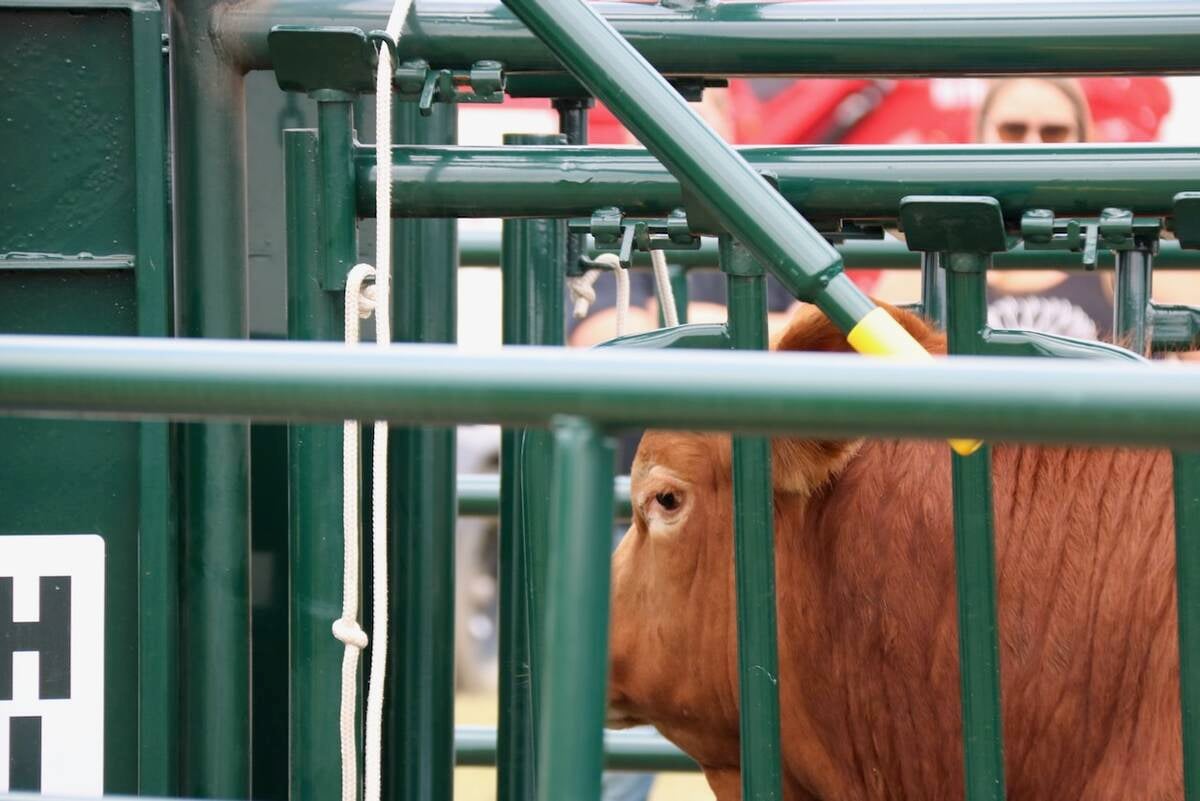OTTAWA — The Canadian Federation of Humane Societies wants the federal government to strengthen the criminal code’s animal cruelty section.
The society wants support from livestock groups for an updated national law that would apply heavier penalties against those who are negligent or deliberately cruel, said Barbara Cartwright, chief executive officer of the society.
Those who work with animals need to be involved or a new law could be unsatisfactory, she added.
“We could end up with a really willy-nilly law in place of what we really want, which is strong protection from cruelty to animals,” she said during the Canadian Cattlemen’s Association annual meeting in Ottawa March 10-12.
Read Also

Good handling equipment a must on cattle operations
It’s important for the safety of producers and everyone else dealing with their stock that handling equipment is functional and safe.
She said undercover videos will expose more livestock operations for bad behaviour, which will prompt upset constituents to contact their government representatives to demand that they do something.
Five private members bills have been introduced in the House of Commons dealing with the issue, and a government bill is on the table to address the protection of service and law enforcement animals.
Laws have been tabled in various forms since the 1990s, but none passed.
Most provinces have updated their legislation in the last seven years, but a single national law would apply a national standard across the country and could carry more severe penalties for offenders.
“When you are charged under the provincial act, your conviction doesn’t follow you,” she said.
“We know from science people move from criminal acts on animals to criminal acts on humans.”
The humane society wants all animals protected, whether they are domestic or wild.
It also wants the language of any new legislation changed from willful neglect to negligence because it is difficult to prove the will of the person at the time.
A new law with more specific language could also charge those who promote and stage animal fights.
“The only way you can be charged with animal fighting is if you are caught in the act of the animals fighting,” Cartwright said.
Animals should also be moved out of the property section of the criminal code because they are conscious beings, she added.
She said the National Farm Animal Care Council could help develop a stronger law that all groups can accept.
“It is important for us as industry who all work closely with animals to get a law that is what we want to see,” she said.
The CCA did not make a commitment to the humane society.
“We have to have the discussion on what we want to see and see if there is a common ground,” said Pat Hayes, co-chair of the organization’s animal health committee.
He said livestock groups should be involved to help develop a reasonable law.
The CCA was involved in writing an updated code of practice for humane cattle handling, which raises standards for care well above what the criminal code states, said Ryder Lee of the CCA.
“We spend our time with codes of practice and industry standards that are well above that. That is where we put our focus,” he said.
However, he said a national law that provides the same standards across the country is desirable.
“We would like consistency across the country so a different province doesn’t mean a different reality,” he said.
“The CCA is more interested in producers doing the best they can and making a good living at it.”
Provincial statutes are different across the country.
Manitoba references the codes of practice, and charges may be laid referring to the code of practice, said Michelle Follensbee, manager of livestock welfare with Alberta Agriculture.
Alberta has an animal protection act that is meant to protect animals from people.
It usually means giving authorities the right to step in and attend to animals that are or are likely to be in distress or are not receiving care.
“Whether or not a person intended an animal to be in distress is a question we ask,” she told an Alberta pork producers conference call.
“We are asking about the outcomes for the animal.”
The Alberta act is complaints driven.
“If an animal is deemed in distress, it can be seized and it can be euthanized without there ever being a conviction,” she said.
Alberta recognizes industry codes of practice, but they are not referenced in the legislation. However, they could be referenced in a court case.
“The provincial act offers a basic level of protection to all animals,” she said.
“The code of practice is above and beyond that.”
barbara.duckworth@producer.com















